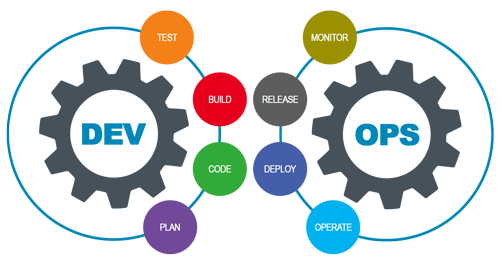The seamless pivot between iterative rapid releases and continuous testing are essential for successful Devops testing in today’s QA culture. For Hale, it’s not just a strategy but an integrated process that we have adopted to support continuous delivery, and automation for successful and robust releases!
Hale's DevOps QA Testing Services
- Process Driven Approach in Implementing CICD
- System, Application, & Infrastructure Monitoring
- Make use of Application, Data & Storage Virtualization
- Cloud & Containerization for Immediate Environment Setup & Availability
- System and Tools Integration for Deployment, Testing & Reporting Automation
- Automate System Tasks & Configurations (Configuration Management Tools)
- Cloud Infrastructure Administration
- Build & Release Management
- Source Code Management
- System Administration
- Secure Systems Vulnerabilities & Access

DevOps Methodologies

With Hale’s DevOps engineers, we bridge the gap between IT operations and development for seamless collaboration to ensure rapid releases while minimizing development iterations. Whether you’re seeking to augment your existing DevOps infrastructure, or establish a continuous pipeline foundation from scratch, Hale has been at the forefront of bringing DevOps to both SMB and enterprise to meet time-to-market expectations
- Data Virtualiztion
- Automated Continuous Testing
- DevOps Testing
- Continuous Integration Testing
- Improved Code Coverage
- Agile Software Development
Hale's DevOps Testing Approach
Quality at Speed is no longer a novice but a necessity for businesses to stay competitive and efficient in terms of successful services. Business-critical Cloud-based applications require a DevOps approach that focuses on quick and continuous development, and deployment across diverse infrastructure and platforms. In addition our DevOps Test Center of Excellence (TCOE) assists with:
- Minimize ( time-to-market through continuous testing and delivery)
- Accelerate ( delivery of releases into production)
- Efficient (resource utilization)
- Continuous Monitoring
- Continuous Integration / Continuous Testing
- Improvement of Code Quality
- Cultural Shift for Collaborative Development

